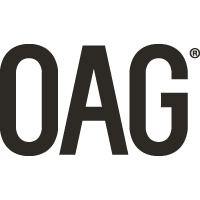Now delivering to 107 countries worldwide, accelerating global expansion
TOKYO--BUSINESS WIRE--
QRESTIA Inc. (Headquarters: Shibuya, Tokyo; President & CEO: Hidemasa Fukada) is pleased to announce that WAFUU.COM, its cross-border e-commerce site, has expanded its shipping network to an additional 37 countries, bringing the total to 107.
1. Overview
WAFUU.COM offers a wide range of Japanese products, from traditional crafts to the latest trends. Previously shipping to 70 countries, the site has now added the 37 destinations listed below. It also continues to support 21 languages, ensuring a safe and comfortable shopping experience for users worldwide.
Newly supported countries/regions (37):
Argentina, Uruguay, Ecuador, El Salvador, Guadeloupe, Cuba, Costa Rica, Colombia, Jamaica, Chile, Trinidad and Tobago, Panama, Paraguay, Barbados, French Guiana, Venezuela, Peru, Honduras, Martinique, Algeria, Uganda, Ethiopia, Ghana, Côte d’Ivoire, Djibouti, Zimbabwe, Tunisia, Togo, Nigeria, Botswana, Mauritius, Morocco, Rwanda, Réunion, South Africa, Bangladesh,Ukraine
2. About WAFUU.COM
WAFUU.COM (https://wafuu.com/) aims to deliver attractive Japanese products to people all around the world. It offers a wide range of items including Japanese sweets, cosmetics, electronics, supplements, anime and game-related goods, and gadgets. Currently supporting 21 languages, WAFUU.COM actively incorporates multi-currency payments and diverse payment methods to ensure users worldwide enjoy a seamless and comfortable cross-border shopping experience.
3. Background of This Expansion
Global demand for Japanese goods has been rising, prompting WAFUU.COM to enhance its international logistics and expand partnerships. By adding shipping to 37 new countries, the platform enables more users -- especially those in South America and Africa -- to conveniently purchase Japanese products.
4. Future Plans
Enhanced Localization
WAFUU.COM will continue to tailor customer support and promotions to various cultural and regional needs, building on its existing 21-language platform.
Expanded Product Range & Content
We regularly monitor and AI-analyze global trends in Japanese products and culture to launch timely products and engaging content, meeting diverse user interests.
5. CEO’s Comment
“At WAFUU.COM, we are committed to breaking down barriers so people worldwide can enjoy Japanese products. This expansion of shipping destinations is a key step in meeting diverse needs and a great opportunity to reach more customers. We will continue improving our services to share Japan’s charm with even more people.”
-- Hidemasa Fukada, CEO, QRESTIA Inc.
View source version on businesswire.com: https://www.businesswire.com/news/home/20250316989214/en/
Contact details:
Hidemasa Fukada
QRESTIA Inc.
Tel: +81-3-5726-9180
Fax: +81-3-5726-9340
E-mail Address: [email protected]



